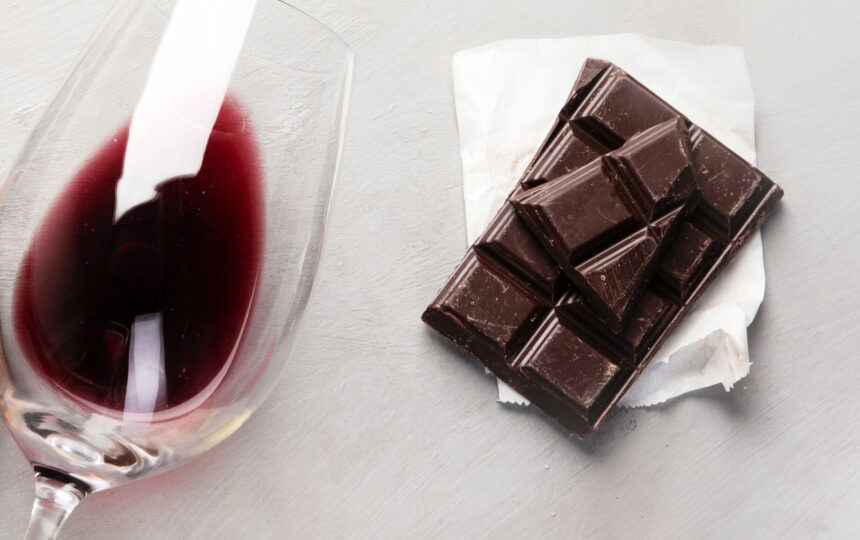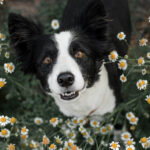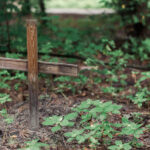Dogs are curious creatures – especially young dogs. Your furry companion may willingly or accidentally gobble up things not meant for them, including foods that can make them sick. Some foods are downright dangerous and even toxic – putting them at the top of the “No-No” for Fido list.
Although you may cave into your pup’s dreamy eyes or incessant begging – it is essential to know which foods and drinks your dog should never consume, no matter how much they pester.
Here is a list of the top potentially deadly foods (and drinks) your dog should never consume and why. Some of these may even surprise you.
If you know or suspect that your dog has ingested one of these items, call your vet or the Pet Poison Helpline immediately.
Products containing Xylitol
Xylitol, a sugar substitute commonly found in sugar-free drinks, gum, candies, and treats, is highly dangerous for dogs. This sweetener can cause a rapid insulin release, leading to hypoglycemia or low blood sugar levels. Seizures and liver failure may follow. Symptoms of toxicity appear within 15 to 20 minutes after ingestion.
Chocolate
While the odd piece of dark chocolate is a yummy treat and even carries health benefits for humans, the same can’t be said for our canine companions.
The saying “death by chocolate” should be taken very seriously when considering your furry best friend and your favorite sweet treat.
Theobromine and caffeine are responsible for the ill effects of chocolate on dogs. Even small quantities of chocolate can lead to vomiting and diarrhea in dogs. If your dog ingests more than 1.5 ounces per 10 pounds of body weight, heart problems and neurologic signs may appear, including tremors and seizures.
The quantity and type of chocolate determine the level of toxic theobromine. Dark chocolate and unsweetened baking chocolate contain the highest amounts of theobromine, while milk chocolate and white chocolate contain lower amounts.
Alcohol
Beer, wine, or anything that includes alcohol is toxic for dogs. These beverages can cause vomiting, diarrhea, decreased coordination, loss of consciousness, and respiratory failure, among other things. Never give your dog alcohol or products containing alcohol.
Products containing marijuana
A small amount of marijuana is all it takes to cause severe issues in dogs. The active ingredient in marijuana, THC (tetrahydrocannabinol), can cause a range of symptoms. Your dog may become hyperactive and disoriented or experience tremors and seizures. Depending on the amount eaten, cannabis can even induce a coma. Smaller amounts of marijuana will bring about vomiting and diarrhea.
The severity of the symptoms depends on the amount of THC ingested and the dog’s size and sensitivity.
Grapes and raisins
Although many fruits and veggies benefit dogs, grapes and raisins are not on this list. The impact varies; some dogs can eat grapes and raisins and survive, while others develop kidney failure within eight hours of ingesting the fruit. Why some dogs are more sensitive is unknown – only those that respond negatively.
One study points the finger at tartaric acid found within grapes. The bottom line is that all grapes should be avoided, including red, green, seedless, skinned, and raisins.
Cooked bones
If you are having roasted turkey or chicken for dinner, don’t even think about giving the leftover bones to your dog. When bones are cooked, they become brittle and can easily break into sharp pieces that can cause choking, gastrointestinal blockages, and damage to the mouth, throat, and intestines. These cooked bones may also splinter inside the bowel, causing internal damage.
According to the U.S. Food and Drug Administration (FDA), between 2010 and 2017, 90 dogs became sick after consuming smoked or baked bone treats sold in stores. Sadly, of these, fifteen dogs died.
If you want to give your dog a bone to chew on, it’s best to choose a raw bone that is large enough for your dog to chew on but not small enough to swallow whole. Veterinarian Dr. Karen Becker recommends choosing a bone that is the size of your pup’s head and never leaving your dog alone with a bone.
Macadamia nuts
Macadamia nuts and any products containing macadamia nuts are on the “do not eat list” for canines. If your canine companion has gotten into nuts, you’ll see symptoms of toxicity within 3-6 hours of ingestion. Your pup may vomit, have a fever and be lethargic. After 6-12 hours, things get worse. Your dog may stumble or not be able to stand. If symptoms are mild, they may go away on their own in a few days. If they persist or are severe, seek treatment.
Note: Avoid almonds and pistachios as well – they are a choking risk!
Onions and garlic
Do you give your dog a little pot roast leftovers? If so, be sure that there are no onions or garlic in the mix, as they are not something your dog should ever eat. It’s not just these two foods but all foods in the Allium family, including chives, shallots, and leeks that should be avoided in all forms – even powdered.
A compound found in these foods called N-propyl disulfide damages red blood cells carrying oxygen. This causes hemolysis which can lead to anemia. Anemia is a very serious condition in pets, as it can cause severe organ failure or death.
Signs that your pooch has consumed something from the Allium family include lethargy, coordination issues, pale gums, vomiting, diarrhea, discolored urine, increased heart rate, and increased respiratory rate.
.
Avocados
Persin is a fungicidal toxin found predominately in the leaves, bark, pit, and skin of avocados and, in less concentrated amounts, in the flesh of this popular fruit. This potentially hazardous substance has been known to cause death in horses and cows and could make your furry friend quite ill. Because of this, it’s crucial to avoid giving any amount of avocado to your dog.
Persin toxicity may lead to fluid accumulation in the lungs and chest, eventually causing breathing difficulties and oxygen deprivation. The severity of the symptoms will depend on the amount of avocado ingested and the dog’s size and sensitivity.
Coffee and tea
Having a tea party with your pup is never a good idea. Coffee and tea are toxic for dogs due to their caffeine content. Caffeine can cause various health issues, such as hyperactivity, vomiting, diarrhea, seizures, tremors, elevated heart rate, lung failure, and abnormal heart rhythm leading to death.
What should I do if my dog has eaten any of these foods?
Every responsible pet parent must know what to do if their dog has been exposed to some toxic substance. If you think your dog has consumed a poisonous substance and is not feeling well, try to stay calm but act quickly and rationally.
- Identify the item your pup ate and how your furry companion came into contact with it.
- Assess your dog’s current state and note any changes in behavior or visible symptoms.
- Call the Pet Poison Helpline and your vet.
- You must be honest with your vet if you know your dog may have ingested any toxic substance. The veterinarian must get all of the information. This will help him properly treat your pet.
- The vet may induce vomiting if not much time has passed since the toxic substance ingestion.
- If the signs of toxicity are more extreme, such as seizure, collapse, or breathing difficulty, you should be ready for an emergency.
How to prevent poisoning in dogs
Prevention is the best thing you can do to protect your furry friend. The good news is that you can take several simple steps to help prevent toxin exposure.
- Keep toxic substances out of reach: Store chemicals, medications, cleaning products, and other potentially harmful substances out of reach of pets. This includes human food that is toxic to dogs.
- Be aware of toxic plants: Many common houseplants and outdoor plants can harm dogs. Do your research before bringing new plants into your home or yard, and remove any poisonous plants that may already be present.
- Use caution with pesticides and fertilizers: Keep your dog away from areas treated with pesticides or fertilizers, and use pet-safe options when possible.
- Keep garbage and compost bins secure: Dogs may be attracted to the smells in the garbage and compost bins, which can contain harmful substances like moldy food or chemicals. Keep these bins secure to prevent access.
- Supervise outdoor playtime: Keep an eye on your dog outside to ensure they don’t ingest anything harmful, like plants or chemicals.
- Provide safe chew toys: Choose chew toys specifically designed for dogs and free from harmful chemicals and materials.
- Be prepared for emergencies: Keep the phone number of your veterinarian and a pet poison control center handy.






